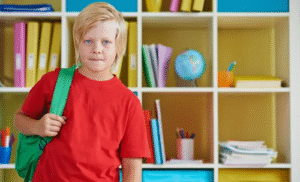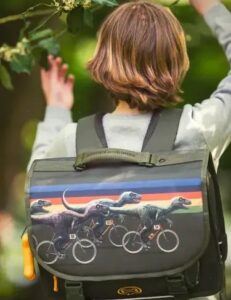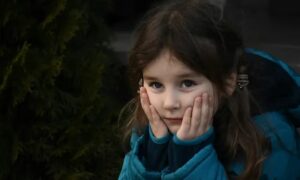My 10-Year-Old Stood Up to a Bully. I Braced for War—Then the Bully’s Powerful Father Called.

When my ten-year-old, Jason, said he’d defended a quiet seven-year-old girl from a rich kid’s taunts, I felt pride rise in my chest like a warm tide. Ten seconds later, a colder feeling followed—because the kid he stood up to wasn’t just any troublemaker. He was Dylan Campbell, the only son of Mr. Campbell—car-dealership tycoon, donor of auditorium wings, the kind of man whose last name has its own business card. Pride is easy. Protecting a child who poked a power line? That’s a different kind of bravery.
It was a Tuesday evening when I first knew something was wrong. I was halfway through peeling potatoes, and the front door creaked open. No “Hey, Mom!” No backpack thumping the kitchen chair. No banana grabbed mid-stride. Instead, Jason ghosted into the living room and folded himself onto the couch like a paper crane that had lost its instructions. He set his sketchbook down, carefully, the way you set down a story you’re not ready to tell.
“Hey, bud,” I said, drying my hands on a dish towel. “You okay?”
He nodded in that small, unconvincing way kids nod when they’re asking for another question. I sat on the edge of the coffee table. “Rough day?”
A pause. His fingers worried the hem of his hoodie. “Yeah.” Another beat. Then: “It’s Emily.”
Emily. The first-grader he’d mentioned in passing—the one with the hand-me-down coat and a lunch she ate slow enough to make it to dinner. The one whose mom worked double shifts at the diner by the bus station. The kid who always sat near the swings like she wasn’t sure playgrounds allowed quiet.
“What happened?”
“Recess.” He breathed out. “Dylan and his friends came over. He looked at her jacket and said, ‘Did your mom fish that out of a dumpster? Or was there a buy-one-get-one at Goodwill?’ Then he took her lunch bag and held it over her head. Said, ‘PB-and-J again? Fancy.’”
My jaw clenched so hard the room hummed. “And you?”
“I told him to give it back.” Jason stared at the carpet. “He laughed. Called me comic boy. I said, ‘At least Emily doesn’t have to buy her friends sneakers to be liked.’ Some kids laughed. One said, ‘He’s right.’ Dylan got red. He shoved her lunch back and left.”
I reached for his hand; he flinched like he’d heard a door slam.
“I think…” He swallowed. “I think he’ll try to get me back. Dylan doesn’t lose. Not in front of people.”
The next morning I watched him walk toward the school gate—hoodie up, sketchbook hugged to his chest like armor. His shoulders were squared, but his feet dragged half a beat behind his courage. Sometimes bravery is not a roar; it’s a kid showing up anyway.
Two quiet days passed. On Friday, he came home with a torn sleeve and a bruise blooming under his cheekbone. He tried to smile. It snagged.
“What happened?”
“He shoved me in the hallway,” Jason said, eyes on his shoes. “Called me ‘Trailer Trash Avenger.’” He tried to laugh and it came out like a cough. “I told him it’s better than being a spoiled brat.”
“And the school?”
“They said they’re ‘looking into it.’” He made air quotes. “Now everybody’s talking. Some kids think I’m stupid for getting in the middle. Some think I’m cool. Dylan looks at me like I stole his crown.”
That night the vice-principal called to schedule a meeting. Her voice had the careful cushion of school diplomacy: We admire Jason’s kindness, but… You can always hear the but before it arrives. I marked the date on the calendar and tried to sleep.
Three nights later, while cartoons hummed low in the living room and laundry warmed my hands, the phone rang from a number I didn’t know.
“Hello?”
“Is this Jason’s mother?” A voice like a polished desk—smooth, cold, heavy.
“Yes… who’s calling?”
“This is Campbell. Dylan’s father.” My throat went dry.
“I need to speak with you about your son,” he said. “He humiliated mine. Meet me at my office tomorrow at nine. We’ll discuss how you intend to rectify this. If not—there will be consequences.”
The line clicked dead and left a silence that sounded expensive.
The Fortress on the Hill
His building was all glass and confidence. The elevator swished so quietly I apologized when it arrived, as if I’d interrupted it. The receptionist measured me with a glance that priced my thrift-store blazer. She led me into a corner office with its own climate.
Mr. Campbell sat behind a desk that could’ve doubled as a runway. Nothing on it but a pen and a thin stack of paper. No photo frames. No kids’ art. The view behind him made the city look like a model train set.
“Sit,” he said.
I did.
He studied me long enough for my heartbeat to learn a new rhythm. “Your son made mine cry,” he said finally, like the words were in a language he didn’t often speak.
“My son stood up for a first-grader,” I said, gentler than I felt. “Your son—”
He cut in. “—told me everything.” He leaned back, elbows on the arms of the chair, fingers steepled. The pose of a man used to winning. Then, softly: “I expected to be angry at you.”
I braced.
“But I’m angry at myself.”
My mind tripped over the sentence. He kept going.
“I give Dylan what money can buy,” he said. “Shoes that release at midnight. A gaming rig so advanced it needs its own fan club. Ski trips. A pony for a month because he wanted one and then didn’t. I gave him… everything—except the things that matter.” He looked past me toward the window. “Humility. Empathy. Limits.”
He drew a breath that sounded like it had been waiting years. “Your son handed him something I never managed to give him.” His gaze returned to mine. “A mirror.”
I stared. My prepared speech—about bullying, privilege, and school policy—evaporated.
He opened a drawer and slid a check toward me—one of those heavy sheets of paper where the zeros look like they have gravity. “For Jason,” he said. “Education. Art classes. Therapy if he needs it. Whatever builds the kind of courage he already has.”
“I can’t take your money,” I said, throat tight. “He didn’t do it for a reward.”
“I know,” he said. “That’s why he deserves it. Keep it or tear it up, but understand this: your son changed something. In my son. In me.”
The receptionist escorted me out with a different kind of glance. Not approval. Not judgment. Maybe—curiosity. Like she’d watched someone open a window in a building that forgot air was free.

What Changed After
That night I found Jason cross-legged on the rug, sketching a superhero with a patched cape and bandaged knuckles. He draws the way some kids breathe—without trying.
“Hey, kiddo,” I said, lowering myself beside him. “I met Mr. Campbell.”
His pencil froze. “Did he yell at you? Am I in trouble?”
“No,” I said. “He… thanked you.”
Jason blinked. “For what?”
“For making his son look at himself.”
He chewed his lip. “Does that mean Dylan’s done being a jerk?”
“Maybe not all at once,” I said. “But I think a door cracked open.”
The next week, Jason came home grinning like the sun had a secret. “You’re not gonna believe this,” he said, breathless. “Dylan came up at recess. He said ‘Sorry for… you know.’ Not loud. Just… real. Then he walked away.”
“That’s it?”
“That’s everything,” he said.
A few days later, I noticed Emily wearing a new coat—navy blue, warm, sleeves that actually reached her wrists. A backpack that didn’t hang like a tired question mark. Word slipped through the parent grapevine: Mr. Campbell had offered Emily’s mom a steady job at one of his dealerships. No ribbon cutting. No press. Just a call, an interview, a yes.
The school, for its part, didn’t send out a poster or declare a Bullying Awareness Week. But something shifted. A teacher told me—off the record—that the sixth graders had started standing in looser rings around smaller kids at recess, like satellites nudging meteors. Two boys from Jason’s class moved themselves to Emily’s lunch table on Mondays and Wednesdays. The lunch monitor said fewer bags were being “borrowed.”
At the vice-principal’s meeting, the script tried to show up—the we admire Jason’s courage, but script—only to get blocked at the door. Mr. Campbell had requested to attend. He sat there in a pressed suit and said, simply, “My son crossed a line. I expect the same accountability from him that I would from your students.” The room exhaled. The but never came.

What Courage Looks Like
Jason still drew comics, but his heroes changed. They started wearing scuffed sneakers. Their superpowers looked less like flight and more like staying. One panel showed a kid standing between a girl with a lunch bag and a boy with a last name. No capes. Just a spine.
“Can I draw Emily as the main character?” he asked one night, yawning.
“Only if she gets top billing,” I said.
“She will,” he promised, and fell asleep with pencil smudges on his fingers like a badge.
Not every day was neat. Middle school is a weather system. Some afternoons he came home quiet and closed, and we made cocoa and didn’t talk. Some mornings he left a little taller. That’s how change works—crooked, persistent, like a vine learning a fence.
Dylan didn’t transform into a saint; no child does on a schedule. But he stopped holding other kids’ lunches over their heads. He said fewer things he couldn’t take back. He learned to say sorry without chewing the word like gravel. And once, at a book fair, I saw him pick up a graphic novel and glance toward Jason, not with challenge but something like interest. They didn’t nod. But they didn’t look away.
As for Mr. Campbell, he didn’t become my friend. We live in different zip codes of the same map. But twice, quietly, envelopes arrived—no return address—each with a note: For Jason’s art classes, and For Emily’s winter boots. I didn’t need to ask where they came from. You can tell when someone is trying to rebuild a bridge they didn’t know they’d burned.
The Call I Wasn’t Ready For
Weeks after the apology, my phone rang again late. The number was new but the gravity wasn’t.
“Mrs. Hart?” His voice was less steel now. “I wanted you to know—Dylan and I started volunteering Saturday mornings. Packing school lunch kits. He chose it himself.” A beat. “It’s not… atonement. He doesn’t know that word yet. But it’s a start.”
I pictured an assembly line of brown paper bags, a boy in a sweatshirt counting apples, a man learning how to say I’m trying without using those words. “Thank you for telling me,” I said.
“Thank your son,” he replied. “He taught mine something I couldn’t buy.”
After we hung up, I stood in the kitchen in that small, glowing silence that happens when the world chooses right.
What We Keep
I’m a single mom. My kid prefers pencils to footballs. He sits with the lonely kid and offers half his sandwich without announcing it. None of that makes him soft. It makes him strong the way a tree is strong—roots first.
If you’re looking for a neat ending, I don’t have one. Real stories don’t stitch themselves closed like that. But I have this: a boy who went to school the next day and the next, even when his knees wanted to turn around. A girl who learned that sometimes people do show up. A wealthy man who realized money can furnish a house but not a heart—and started, quietly, to furnish both.
Change didn’t sweep in with banners. It showed up in small things: a lunch bag returned, a coat that fit, a “sorry” mumbled and meant, a comic book panel where the hero is a kid who simply stands where standing is needed.
One night, as I tucked him in, Jason whispered, “I didn’t want Dylan to get in trouble. I just didn’t want Emily to be scared.”
“That,” I told him, brushing a pencil streak from his cheek, “is what real heroes say.”
And if this story leaves anything behind, let it be this: the biggest shifts don’t always come from principals, policies, or men whose names are on buildings. They start in the quieter places—in a schoolyard corner, under a swing set’s shadow, in the moment a ten-year-old decides a stranger’s dignity is his business.
That’s where the world moves. One small, stubborn act at a time.